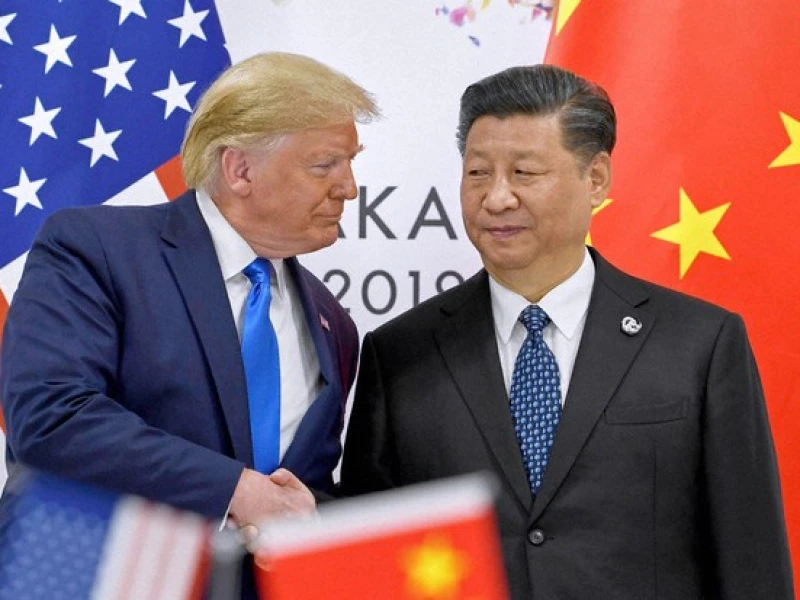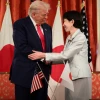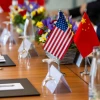US President Donald Trump and Chinese President Xi Jinping have begun a new round of high-level talks aimed at striking a deal that could finally end the years-long, on-again-off-again trade war between Washington and Beijing.
The meeting, held at the Gimhae Air Base near Busan’s international airport, marks the most significant step toward reconciliation since the two sides agreed to a fragile truce in May.
That temporary truce had scaled back some of the steep retaliatory tariffs — which had soared to over 100% on both sides — and briefly restored optimism in global markets.
Yet tensions quickly reignited over two critical issues: Beijing’s access to advanced semiconductor chips and Washington’s dependence on China for rare earth minerals.
According to diplomatic observers, Beijing has chosen to “escalate to de-escalate,” a strategy that allowed Xi to enter the talks with a sense of leverage. “Xi will feel like he has walked into this meeting with a strong hand,” noted our China correspondent, pointing to China’s recent trade manoeuvres and steady economic rebound.
On the other side, President Trump appears equally confident.
His ongoing Asia trip has delivered several policy wins that bolster his negotiating position, but as our North America correspondent puts it,
“China is the big enchilada in Trump’s trade war.” The US president has repeatedly framed a breakthrough with Beijing as essential to restoring America’s manufacturing and technological dominance.
Complicating matters further, several contentious issues remain on the table — including the fate of Chinese-owned TikTok’s operations in the United States, which Washington has threatened to ban unless a full divestment occurs.
In a dramatic move just hours before the Busan meeting, Trump took to his social media platform, Truth Social, ordering the US Department of War to “start testing America’s nuclear weapons immediately.”
The declaration drew swift international attention and raised questions about whether it was a bargaining tactic or a signal of renewed military assertiveness.
For now, both leaders are projecting cautious optimism. Officials on both sides say the talks could continue into the weekend, with the potential for a framework agreement to be announced as early as next week — a development that could reshape the global trade landscape and redefine the future of US–China relations.
# BBC


 Prev Post :
Prev Post :
